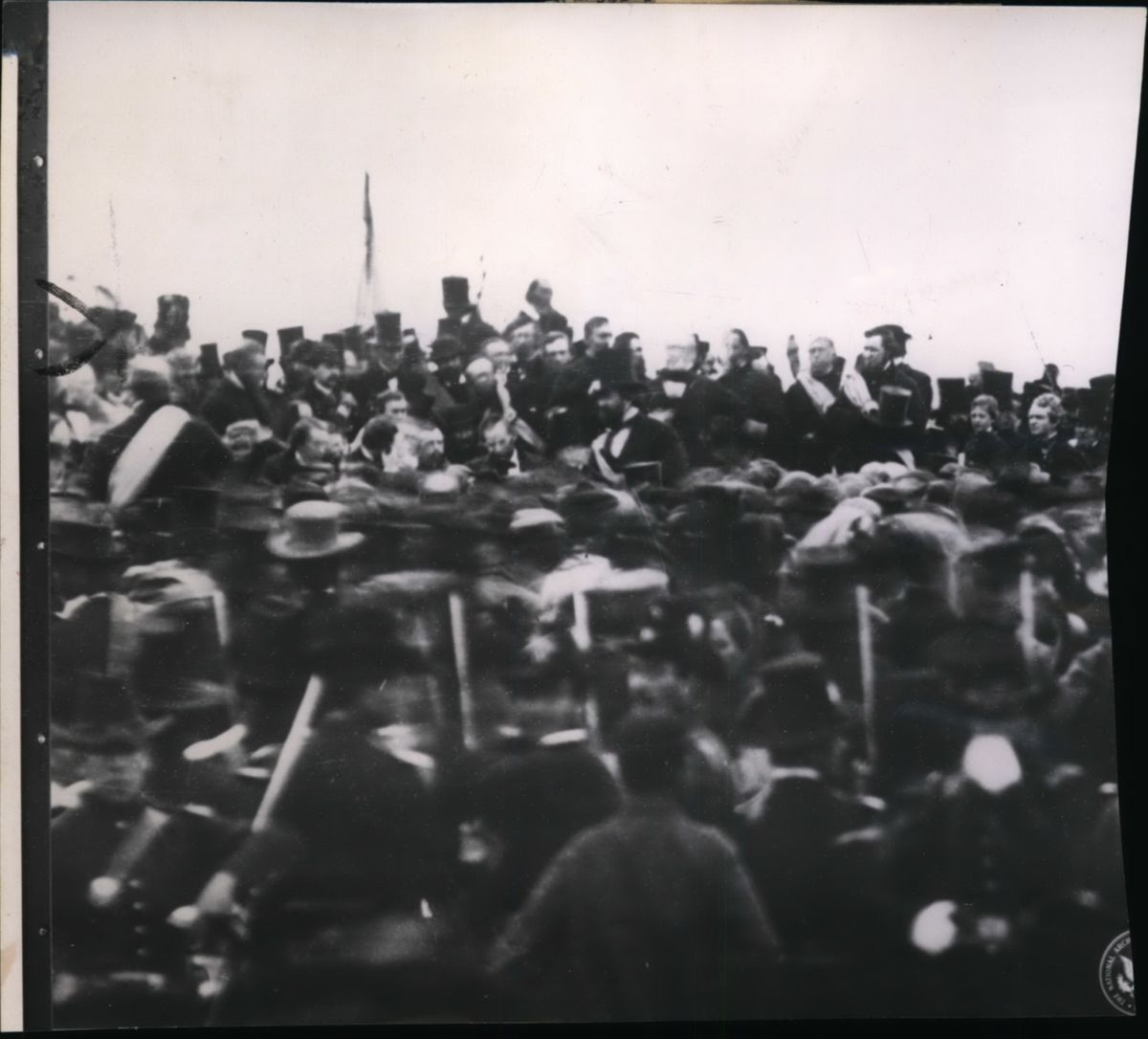We the People: Lincoln’s Gettysburg Address was an oratory study, but it also relays important messages for the next generation

Each week, The Spokesman-Review examines one question from the Naturalization Test immigrants must pass to become United States citizens.
Today’s question: Abraham Lincoln is famous for many things. Name one.
When Supreme Court Justice Stephen Breyer announced his retirement last month at the White House, he stressed that the United States was and remains an experiment.
He pointed specifically to a line in Abraham Lincoln’s Gettysburg Address for some evidence: “Now we are engaged in a great civil war, testing whether that nation, or any nation so conceived and so dedicated, can long endure.”
“You know who will see whether that experiment works?” said Breyer, who noted that his wife paid their grandchildren to memorize the speech. “It’s you, my friend. It’s you, Mr. High School Student. It’s you, Mr. College Student. It’s you, Mr. Law School Students. It’s us, but it’s you. It’s that next generation.”
Lincoln delivered the Gettysburg Address on Nov. 19, 1863, at the site of the pivotal Civil War battle.
Now known as one of the most powerful speeches in history, the address took just 2 minutes to recite. While Lincoln’s 213th birthday was Saturday, experts say his speech relates to current events that the next generation can apply in their lives today.
When Lincoln gave his speech, he realized that the U.S. had a long way to go before all citizens were equal, said Dr. Elise Leal, assistant professor of history at Whitworth University. She thinks that Lincoln wanted listeners to realize the inequities and “do something about it.”
“(The Gettysburg Address) is one of those historical highlights that definitely needs to be taught and preserved because of both the complications and the contradictions that it speaks to, not just the idealism,” Leal said.
The speech’s themes of democracy and equality raise important questions to think about today, she said.
“Do we allow everyone to participate equally in society, in our government, in the creation of our culture?” Leal said. “I very much think that’s still a question that we’re wrestling with, not in the same way as when Lincoln was speaking, but some of the themes are still very present.”
Today’s Black Lives Matter movement, discussions of who counts as an American citizen, voting rights debates and more are all similar to themes in the Gettysburg Address, Leal said.
Cornell Clayton, distinguished professor of government at Washington State University, said the address relays important messages that should be taught in schools today, such as what it means to be American, Clayton said.
“A real American is not somebody of a particular race or a particular religion or somebody who is necessarily even born here,” Clayton said of the Gettysburg Address’s message. “A real American is somebody who is committed to the American ideals.”
The Gettysburg Address also is a reminder of the power of the right to vote, he said.
“(The speech says) what authorizes the government is not necessarily complying with some natural laws or something like that,” Clayton said. “What authorizes the government is the sovereignty of the people and the consent of the people as a sovereign body.”
While Lincoln’s ability to summarize “the American experiment” in such a short address should be taught to students as an example of impressive political oratory, Clayton said, the ideas expressed are more important.
“Unlike all other nations which were formed on the basis of blood and soil and ethnicity and place, the United States was an experiment,” Clayton said. “It was the idea that what makes you an American is a commitment to certain ideals rather than where you’re born or who your ancestors were, and anybody could be an American if they were committed to those ideals.”
At the end of his remarks at the White House, Breyer said he believes the American experiment will endure.
“I’m an optimist and I’m pretty sure it will.”